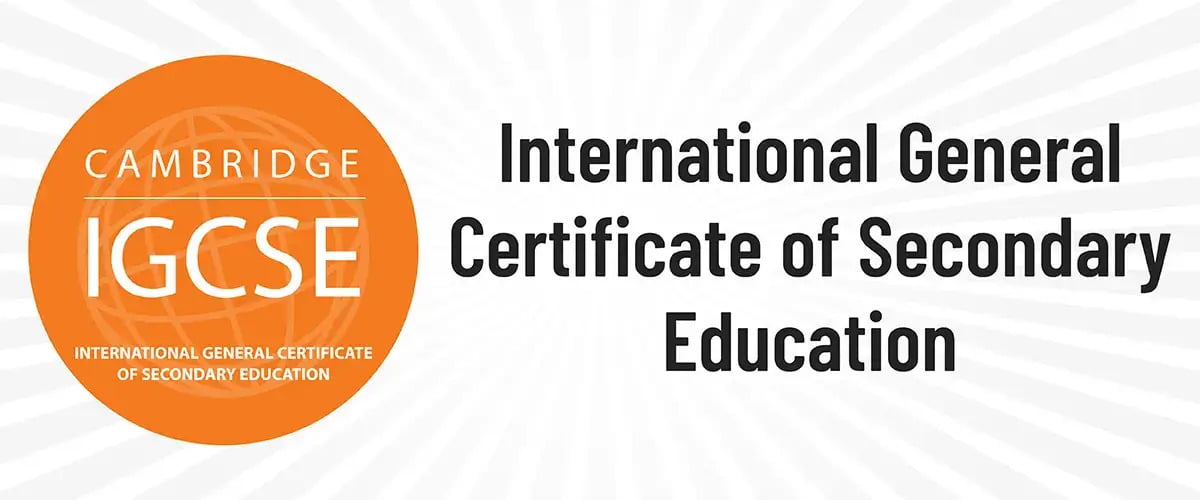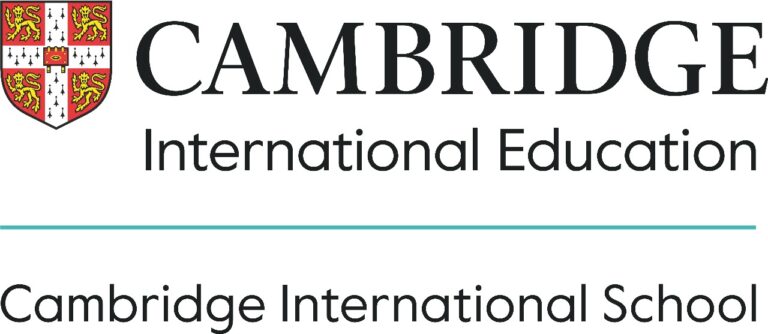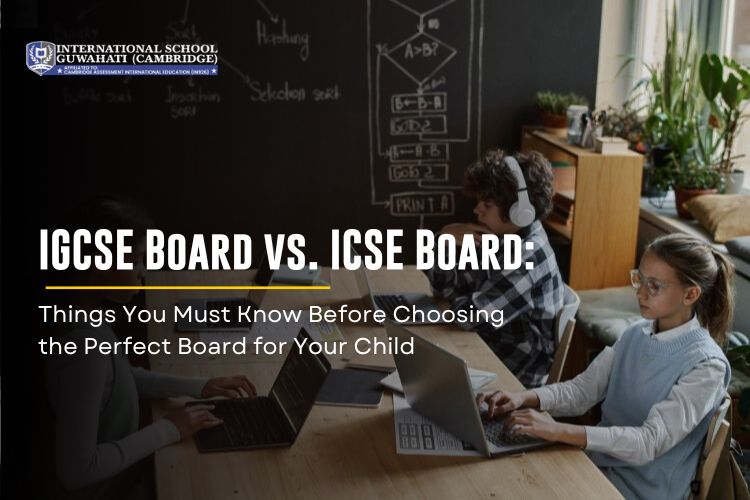![]()
IGCSE Board and ICSE are two prominent options in India. As parents, you want to ensure the best possible education for your child, and choosing the right board is a crucial decision. Factors like whether your child plans to study in India or abroad, their subject of interest, the availability of coaching, the syllabus, the medium of instruction, and the application of concepts all come into play.
In this blog post, we shed light on the key differences between the IGCSE Board and ICSE. By understanding these distinctions, parents can make an informed choice and select the most suitable board for their child’s educational journey.
Overview of ICSE Board

Firstly, what is ICSE? The ICSE (Indian Certificate of Secondary Education) is a comprehensive board that conducts the exam under the CISCE (Council for the Indian School Certificate Examinations). It is a private board for the students studying in the 10th grade.
The board is designed to check students in a course of general education following all the suggestions made by the New Education Policy, 1986, in English. The Board focuses on learners’ overall development.
Overview of IGCSE Board

The IGCSE exam, developed by the University of Cambridge Assessment International Education (CAIE), offers two boards, Cambridge Assessment International Education and Pearson Edexcel, focusing on core subjects and practical applications. With an extensive and flexible two-year program, students can choose from 6 subject groups and select a minimum of 5 subjects.
1. Difference Between ICSE and IGCSE
ICSE board provides students with a variety of subjects to choose from. English is a mandatory subject, and students must select 6 subjects in total. These subjects are divided into three groups: Group type 1 includes compulsory subjects, Group kind 2 allows students to choose any 2 subjects from 4 options, and Group number 3 requires students to select 1 subject from 11 available options.
1st Group: Level 1 (Compulsory Subjects)
- English
- Second language
- History/Civics and Geography
- S.U.P.W
2nd Group:
- Maths
- Science
- Economics
- Commercial Studies
3rd Group:
- Technical drawing
- Computer applications
- Art
- Dance
- Carnatic music
- Drama
- Yoga
- Economic applications
- Instrumental music
- Mass media and communication.
- Modern foreign language.
IGCSE Subjects
IGCSE Board, students are allowed to opt for a minimum of 5 subjects with a maximum of 14.
The core subjects under the IGCSE are:
- First Language
- Second Language
- Mathematics
- One or more Sciences subjects.
Subjects are divided into the following groups:
- Languages
- Humanities and Social Sciences.
- Sciences
- Mathematics
- Creative, Technical, and Vocational.
- IGCSE vs. ICSE: Syllabus
- The ICSE curriculum covers a broad range of subjects, including Mathematics, Arts, Home Science, and more, with equal emphasis.
- Similarly, the IGCSE syllabus is also more focused on practical and application-based learning.
- ICSE offers additional subjects like Science, Maths, Language, Arts, Home Science, Agriculture, Fashion Design, and Cookery, with a strong emphasis on the English language.
- IGCSE allows students to choose subjects based on their interests, including Science, Humanities, Languages, and Mathematics, along with subjects like Fine Arts, Visual Arts, Technical Drawing, Music, Filmmaking, and Community Service.
- The IGCSE full form (The International General Certificate of Secondary Education) promotes analytical, critical thinking, and communication skills.
- Private Students
- ICSE does not allow private students to take the exam, whereas IGCSE has no such restriction.
- Localized Content
- IGCSE supports localized content in the respective regions, while ICSE focuses on common content.
- Level
- ICSE is a national-level exam conducted in India, while IGCSE is an international-level examination.
- Grading
- IGCSE uses a three-tier grading system (Distinction, Merit, and Pass), while ICSE is based on marks.
- Course Duration
- ICSE has a course duration of two years (classes 9th and 10th), while IGCSE also has a two-year duration.
- Existence
The ICSE full form (Indian Certificate of Secondary Education) branch was founded in 1986, while the IGCSE board was established in 1988.
Are the ICSE board and the IGCSE the Same?
In simple terms, ICSE is an Indian national examination, while IGCSE is an internationally recognized curriculum and board. ICSE offers quality education within India, while IGCSE provides greater subject flexibility and maintains a high international standard. Therefore, both boards prioritize the English language and have certain similarities.
Who Follows The Cambridge Board?
The Cambridge board, officially known as Cambridge Assessment International Education (CAIE), is followed by a wide range of schools and educational institutions worldwide. These include international schools, private schools, and institutions that offer Cambridge programs and qualifications. The Cambridge board provides curriculum and assessment services for various stages of education, including primary, secondary, and pre-university levels. Read our blog about the entrance exams you can appear through IGCSE Board.
CONCLUSION
Analyzing and evaluating both of these boards thoroughly will empower parents to make an informed decision about their child’s future. It is essential to consider not only the pros and cons, but also factors like fee structure and seat availability. When searching for ICSE schools near me, it is crucial to choose a school that aligns with your preferences and aspirations. Conduct a comprehensive research to select the most suitable option for your child’s education.










